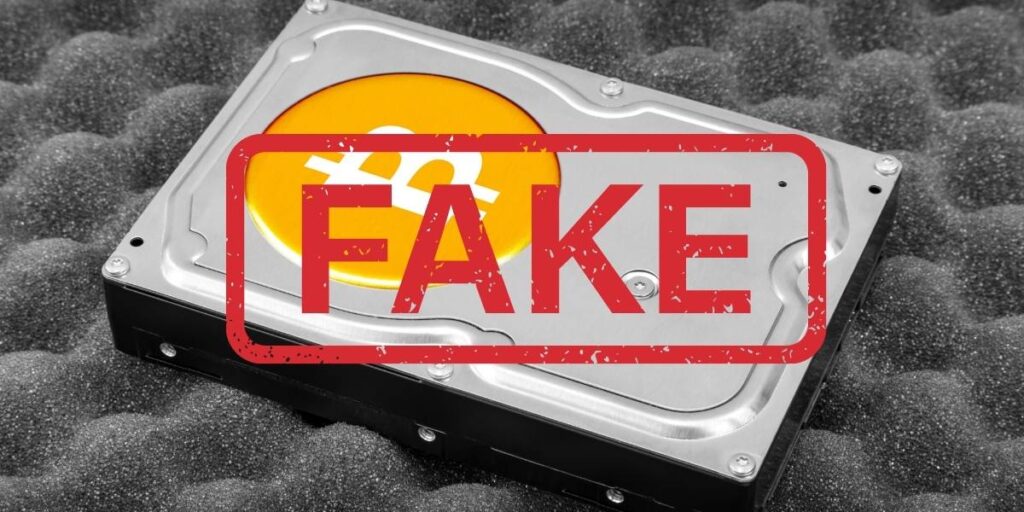Crypto Scams
September 17, 2022 • César Daniel Barreto

If you are up to date on current events, you’ve most likely heard of Bitcoin or other types of cryptocurrency. Cryptocurrency has been in vogue for many years and has quickly spread worldwide like wildfire. This has presented new risks for potential investors. People eager to jump on the trend invest in different forms of crypto without taking basic precautions. As a result, they are more likely to be taken advantage of.
Due to the lack of regulation for cryptocurrencies like Bitcoin, scammers and hackers have found easy ways to make a quick buck. There have been reports in the media of people making millions from illegal crypto activities.
As people become increasingly interested in Bitcoin, so too do the fraudsters and scam artists. Most people are unfamiliar with their methods, so con artists and swindlers are having a field day in the crypto world. The scammers have developed sophisticated ways to deceive and profit off unsuspecting investors.
The best way to avoid being scammed outright is by researching and reading how these scams typically operate. In this article, we’ll explore some of the more popular crypto scams out there and see how exactly they manage to trick people. You can protect yourself from falling victim to one of these schemes with a better understanding of the risks involved and what red flags to look for.
The Evolution of Bitcoin and Cryptocurrency
A Bitcoin is a digital number created by a mathematical function called a “HASH.” It is accessed through a “public” and a “private” key and held in a blockchain, which is a digital ledger. The ledger is not kept in any one location but in many.
You can only add new transactions to the ledger; you cannot change or delete an existing transaction. Bitcoin and other cryptocurrencies work on a similar principle. So, anyone can see all the transactions that have ever occurred, but no one knows who owns which Bitcoins.
When you want to buy something with Bitcoin, you must find a seller willing to accept Bitcoin as payment. Transactions can be completed through a crypto exchange or directly between people.
Other firms have followed in Bitcoin’s footsteps by creating their own versions of digital currency. Now, there is a slew of alternative cryptocurrencies, many of which are small copies that change the overall coin supply or hashing algorithms. Ripple and Litecoin are two notable examples. Ethereum, on the other hand, was created to be much more than a digital currency. It is a decentralized platform that can run smart contracts or computer programs that automatically execute when certain conditions are met. This allows for a whole new world of possibilities, such as developing decentralized apps (dapps).
Cryptocurrencies have captured the imagination of many people, and their popularity has seen a meteoric rise in recent years. However, this interest has incentivized a good amount of crypto scams. Below, we will outline some of the most common types of crypto scams to watch out for.
Crypto Mining Scams

Cloud mining is a form of fraud that utilizes specialized equipment to mine bitcoins remotely via a cloud-based system. This method allows people to use sophisticated technology without paying hefty up-front expenses or maintenance costs associated with running their hardware. Now, not all cloud mining is done deviously; it can be employed for benign reasons. However, some scammers have used cloud mining to defraud others by stealing their money.
Some investment firms that utilize cloud mining are legal, and people make money daily. But beware, illegal and unethical firms also want to scam you out of your savings.
How to Avoid Crypto Mining Scams
The best way to avoid crypto mining scams is to do your research. Make sure you understand cloud mining and how it works before investing in any firm. Be sure to look for red flags, such as a lack of information on the website, lack of professionalism, or pressure to invest quickly. If you’re unsure about a company, it’s best to stay away and find another crypto-mining opportunity.
Phishing Scams

Phishing is the term used to describe a fraudulent act of obtaining critical sensitive data, such as usernames and passwords, by using a fraudulent website disguised as a reputable website. Users are often directed to these fraudulent sites through links sent to them in emails or on Google advertisements.
Scammers send phony emails to customers, convincing them that their account or wallet has been compromised. They are instructed to click a link to repair the problem. This phony website usually appears to be practically identical to the genuine one, using similar design and color schemes. This tricks users into submitting their sensitive personal data.
Depending on the profit potential, the scammers may use or save the data later.
The Myetherwallet scam is a fantastic example of how these scams operate. The phony website was created to mimic the genuine one, fooling people into giving away their personal information. As a result, the duped people lost a lot of money. It’s frightening to think that the fraudulent Myetherwallet software was among the top three applications in the App Store.
The fact that this scam spread and affected many users demonstrates how vulnerable this industry can be. Additionally, user susceptibility to attacks makes the problem worse.
Another phishing method is the use of “airdrops.” An “airdrop” is when an illegitimate company tries to offer free tokens to people in exchange for downloading their app. They will often need your password and username to access your account and steal your money.
How to Avoid Crypto Phishing Scams
- Keep informed. The more we understand the world, the better. Keep up with the most recent news and read as much as possible. Stay current by reading news stories and listening to podcasts or audio files. Staying informed requires some effort, but it will benefit you greatly in the long run.
- Be very careful about putting your personal information online. Make sure the website address says “HTTPS.” If anything about the website is suspicious, don’t fill out any forms. You can ask a friend for their opinion or search for reviews before going any further. Beware of websites that try to rush you with deadlines, as criminals often use this tactic to make people act urgently without thinking clearly.
- Always choose a strong password, and make sure you remember it! You can use a password generator tool available online to enhance security. It’s also a good idea to use a different password for each account. If one account is compromised, the others will remain safe.
Malware Scams

Malware is malicious software used to damage or gains unauthorized computer system access. It can be in the form of a virus, worm, or Trojan horse.
Cryptocurrency users must be especially careful of malware attacks, as hackers can use them to access their private keys or wallet seed phrase. They will do it by sending phishing emails or creating fake websites in order to trick victims into downloading the malicious software. Once downloaded, the malware runs in the background and sends sensitive information like private keys or wallet seed phrases straight to the attacker, giving them complete control over his money.
The Crypto Currency Clipboard Hijackers was a malware scam that piqued people’s interest. These scammers utilized the Windows clipboard as their weapon. In the past, some of these con artists only tracked a small number of cryptocurrency addresses using the Windows Clipboard, but this one was truly enormous.
The scammers put false addresses into people’s computers. When people copied and pasted the addresses, the coins would go to the scammer’s account.
How to Know if Your Computer is Infected with Malware
- Your PC shows signs of slowing down.
- You can’t access certain websites.
- Your computer displays pop-up ads even when you’re not browsing the web.
- You notice that files or programs are missing.
- Your home page has been changed without your permission.
- Your friends tell you that they’ve been receiving strange emails from you.
How to Get Rid of Malware
If you fear your computer has contracted a virus or malware, take action immediately.
If you have anti-malware software installed, run a scan. If you don’t have any installed, now would be a good time to download some (we recommend Malwarebytes).
Once the scan is complete, your anti-malware software will give you a list of the infected files. You can then delete them.
If you can’t access your anti-malware software for some reason, you can try running a scan using an online service such as VirusTotal.
Fake Crypto Wallets

Scammers often use fake wallets to convince people to reveal their passwords and private keys. For example, when Bitcoin Gold was new, scammers created a fake wallet called mybtgwallet.com. By using this website, people revealed their private keys to the scammers, which led to millions of dollars being stolen from user accounts. In total, users lost nearly $3 million because of this scam.
How to Avoid Crypto Wallet Scams
- The best way to avoid crypto wallet scams is to do your research. Make sure you are using a reputable wallet provider by checking online reviews and comparing different wallets.
- When creating a new crypto wallet, always use a strong password and never reveal your private keys to anyone. If you think your crypto wallet may have been compromised, immediately reset your password and change your private keys
- Check for the “HTTPS” in the URL and a green lock icon that indicates a secure connection.
ICO SCAMS

Since the advent of cryptocurrencies, institutional investors have shown great interest in digital assets. However, many ICOs have become frauds, with businesses vanishing once they acquire a large amount of money.
Since the money has already been raised and no regulatory body oversees the creators’ decisions regarding its application, the ICOs are free to do what they want with the money. They can easily walk away with the cash or work within the confines of the law.
The Giza Scam was an infamous example of fraudulent ICO activity when nearly $2 million was taken from unsuspecting investors. When the major provider announced they had severed ties with Giza due to reasons that would cause any supporter to flee, the warning flags began fluttering. Allegations of fraud soon followed, and no one could get their money back.
The developers of the Enigma Catalyst project also ran away with $45 million, despite having a working product.
How to Avoid ICO Scams
When considering investing in an ICO, do your own research, and never invest more than you can afford to lose. Read the whitepaper and understand the project before making any decisions.
To find a reputable ICO, look for positive online reviews and a strong community presence. Additionally, check whether the project has a working product and a clear roadmap for the future.
Pump and Dump Scam

Pump-and-dump schemes are a form of investment fraud in which individuals invest in a company that is either overhyped or destined to fail. The fraudsters persuade these investors to put money into the scam before selling their shares at a high price point. Because victims may have difficulty determining whether or not there was genuine potential for development within the firm, such cons often target digital cryptocurrencies.
Some investors may be hesitant to invest in a project, but they are encouraged by the promise of a major player investing or partnering. This makes people believe in the project, even though it doesn’t seem very promising otherwise.
The scammers drive the price by making many people believe in it. When they’re done, and the price can’t go any higher, they sell all at once, causing the price to plummet quickly.
This can happen in a matter of a few minutes!
An example of a crypto pump-and-dump scam is the Bitconnect Scam.
Bitconnect was a cryptocurrency that was advertised as a high-yield investment program. It promised returns of up to 40% per month, which was far higher than anything else on the market.
Many people invested in Bitconnect, but the price soon crashed and they lost all their money.
Another example of a crypto pump-and-dump scam is the PlusToken Scam.
PlusToken was a cryptocurrency advertised as a way to earn interest on your investment. It promised returns of up to 9% per month, which was much higher than anything else on the market.
People invested in PlusToken, but the price soon crashed, and they lost all their money.
How to Avoid Pump and Dump Scams
Before you invest in any cryptocurrency, do your homework. Don’t invest in a new currency if there are a lot of news stories, blog entries, or essays about how popular it is. Look up the coin and read its white paper to learn more about who created it and why. This will help you determine if any pump-and-dump schemes are going on with this currency.
Ponzi Crypto Schemes

Ponzi schemes are a type of fraud that involve telling potential investors that they will make a profit by recruiting new members. The problem is that eventually, there aren’t enough new people investing money into the scheme, and it falls apart because there isn’t enough revenue coming in to support everyone who invested. When this happens, everyone who invested in the scheme is ripped off, regardless of how much money was originally brought in or where it was spent. Scammers make a quick profit and then leave their victims stranded. Ponzi schemes have infiltrated the cryptocurrency world and are scamming investors worldwide.
The financial damage caused by these types of scams is devastating.
Forsage-crypto, a crypto Ponzi scheme that spanned over two years, duped investors by letting them partake in transactions that used Ethereum, Tron, and Binance smart contracts. Forsage-crypto’s affiliate marketing business model drew investors in with the guarantee of profits. As stated on the SEC’s website, Forsage enticed millions of retail investors by offering a user-friendly platform for Ethereums’, Trons’, and Binances’ blockchains. Moreover, it dependably utilized newly invested money to repay earlier participants–a hallmark trait of pyramid schemes.
Another example of a crypto Ponzi scheme is the OneCoin scam. The OneCoin scheme was promoted as a way to earn money by investing in a new cryptocurrency. However, the company has been accused of being a Ponzi scheme. According to the company’s website, it was established in Vietnam, but the country later disputed this claim. Additionally, several disasters across several countries and territories worldwide have revealed that OneCoin is fraudulent.
How to recognize a Ponzi Scam
- The revenue is exponentially high
- Unlicensed brokers
- Lack of transparency
- Lack of information about the company
- Unregistered investments
If you have already been scammed, there are a few things you can do:
- Contact the SEC at https://www.sec.gov/tcr. The SEC is the US regulator for securities, and they will be able to give you more information on what to do next.
- File a complaint with the FBI at https://www.ic3.gov/Home/ComplaintChoice. They will be able to investigate the scam and help you get your money back.
- Contact the Federal Trade Commission at https://www.ftccomplaintassistant.gov/. They will be able to help you get your money back and also prevent the scammer from continuing to scam other people.
- Contact FINRA at https://www.finra.org/. FINRA is the financial regulator in the United States. You can file a complaint and report any potential scams or suspicious activities by a brokerage.
Concluding Thoughts
The best way to avoid crypto scams is to do your homework. Research any cryptocurrency or project before you invest in it. Also, check the source of any news stories or blog posts about a cryptocurrency before you believe them. Finally, if something sounds too good to be true, it probably is!
César Daniel Barreto
César Daniel Barreto is an esteemed cybersecurity writer and expert, known for his in-depth knowledge and ability to simplify complex cyber security topics. With extensive experience in network security and data protection, he regularly contributes insightful articles and analysis on the latest cybersecurity trends, educating both professionals and the public.